General Discussion
Forum home - Go back to General discussion
|
Mullard MAS15-34
|
|
|
Return to top of page · Post #: 1 · Written at 10:13:53 PM on 6 August 2018.
|
|
|
|
Location: Latham, ACT
Member since 21 February 2015 Member #: 1705 Postcount: 2220 |
|
Wow I got this massive beautiful set from a mate last night. The case has no blemishes at all. The interesting thing is that it is made in England and has a ARTS&P sticker on it. 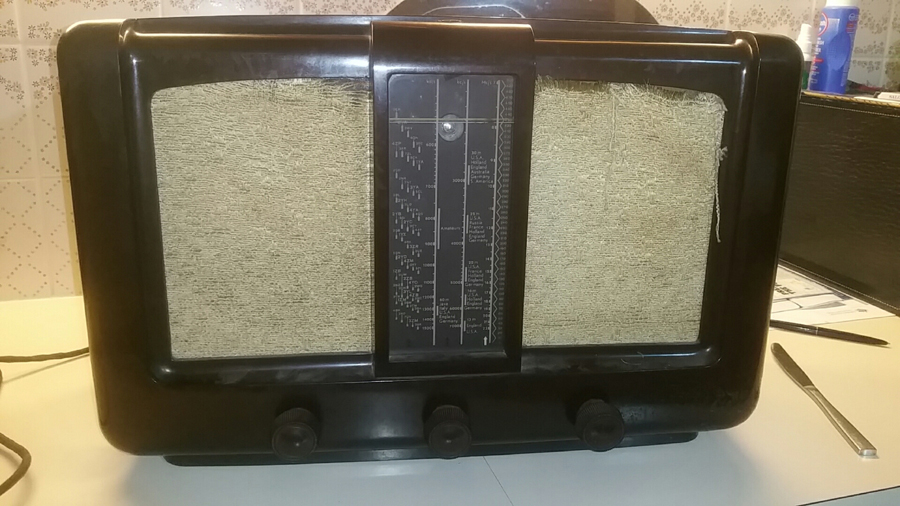 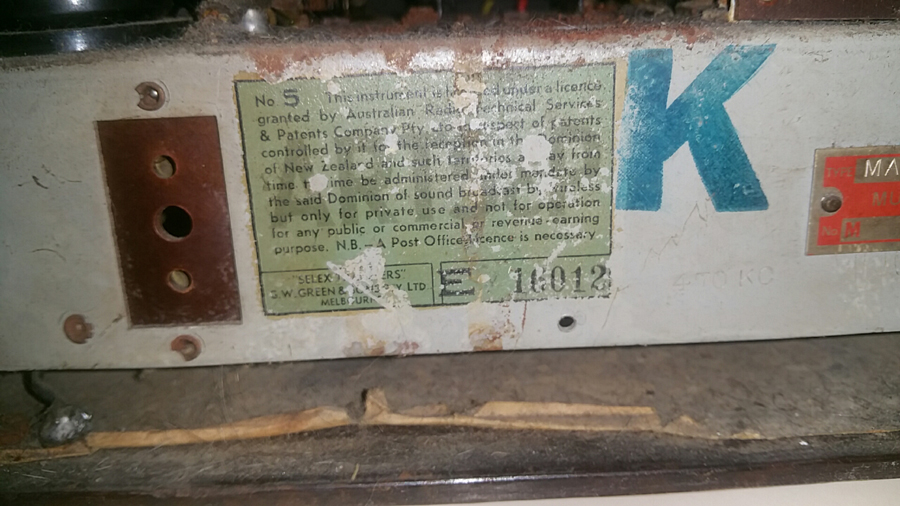 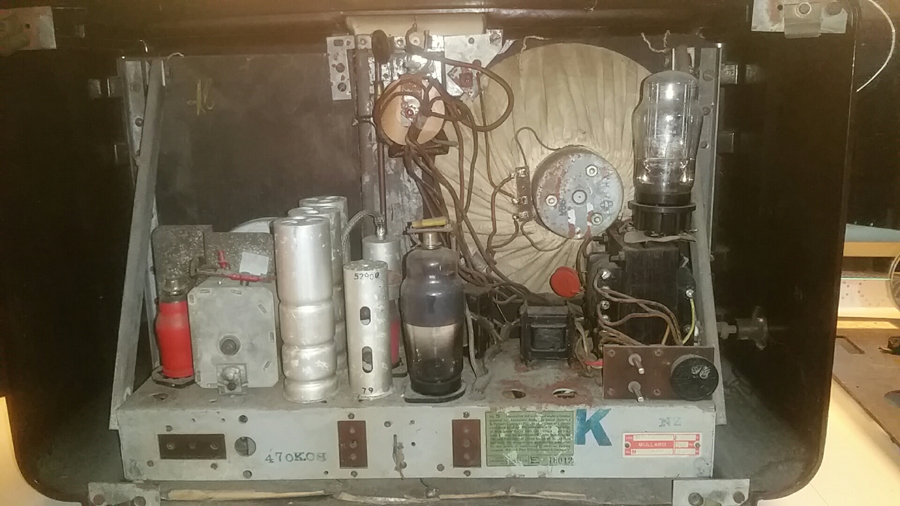 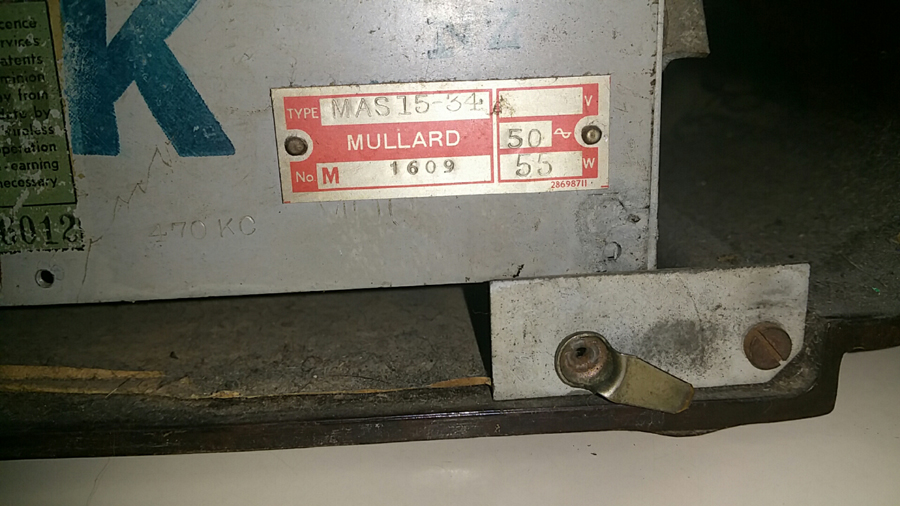 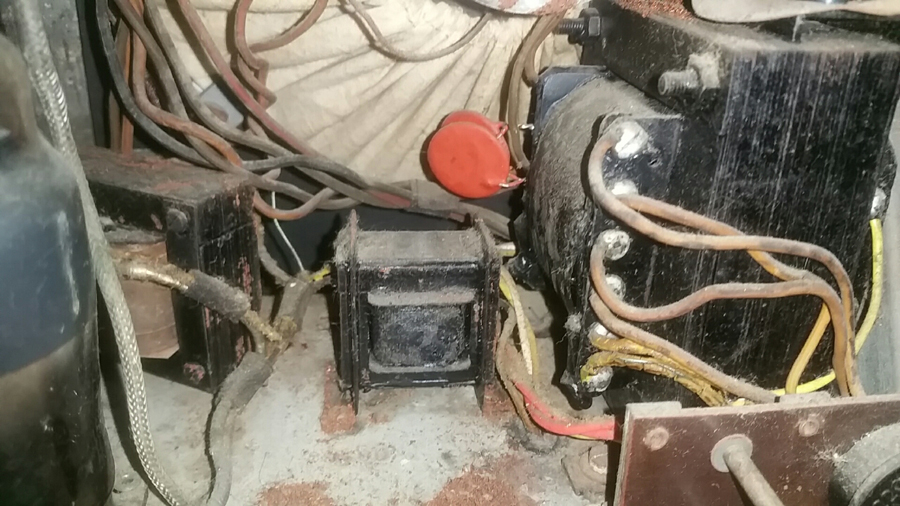 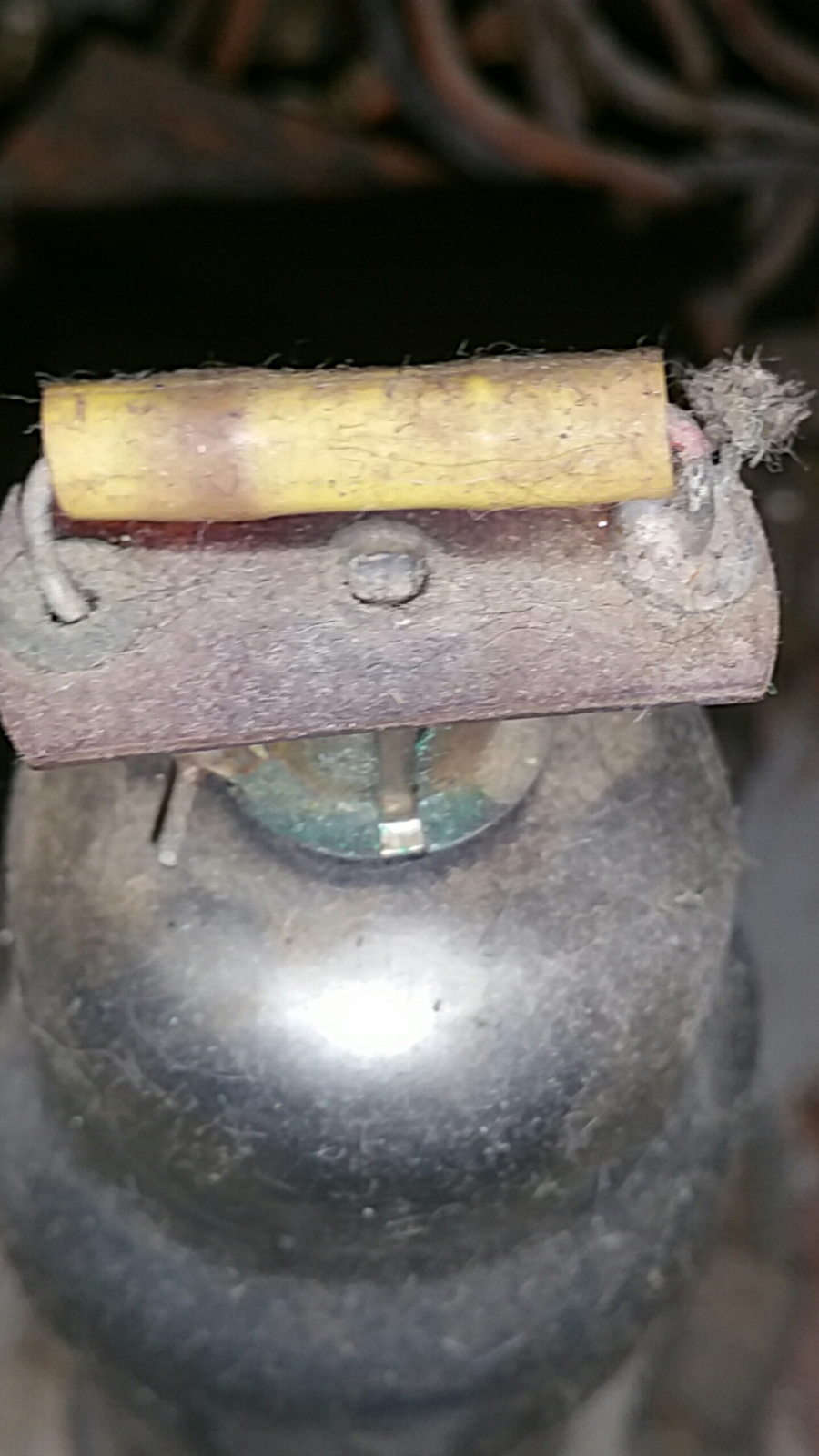 |
|
|
Return to top of page · Post #: 2 · Written at 1:28:38 PM on 7 August 2018.
|
|
|
|
Administrator
Location: Naremburn, NSW
Member since 15 November 2005 Member #: 1 Postcount: 7564 |
|
I can't see anywhere as to the country of manufacture, however many Australian radios that were put on ships for export were labelled as "British Made" rather than "Australian Made", probably out of loyalty to the mother country. AWA did this with their Radiolettes of the 1930s. ‾‾‾‾‾‾‾‾‾‾‾‾‾‾‾‾‾‾‾‾‾‾‾‾‾‾‾‾‾‾‾‾‾‾‾‾‾‾‾‾‾‾‾‾‾‾‾‾‾‾‾‾‾‾‾‾‾‾‾‾‾‾‾‾‾‾‾‾ A valve a day keeps the transistor away... |
|
|
Return to top of page · Post #: 3 · Written at 2:06:20 PM on 7 August 2018.
|
|
|
|
Location: Sydney, NSW
Member since 28 January 2011 Member #: 823 Postcount: 6887 |
|
Note from Radiomuseum: "The AC/DC version of this set [MAS15] is MUS15. This set is a Mullard version of Philips 650A. The Philips schematic can be used." |
|
|
Return to top of page · Post #: 4 · Written at 2:36:01 PM on 7 August 2018.
|
|
|
|
Location: Latham, ACT
Member since 21 February 2015 Member #: 1705 Postcount: 2220 |
|
Do you have that schematic at hand GTC? |
|
|
Return to top of page · Post #: 5 · Written at 3:03:20 PM on 7 August 2018.
|
|
|
|
Location: Latham, ACT
Member since 21 February 2015 Member #: 1705 Postcount: 2220 |
|
Double post. |
|
|
Return to top of page · Post #: 6 · Written at 3:14:22 PM on 7 August 2018.
|
|
|
|
Location: Sydney, NSW
Member since 28 January 2011 Member #: 823 Postcount: 6887 |
|
No, I don't have anything that early for either Mullard or Philips.
|
|
|
Return to top of page · Post #: 7 · Written at 5:11:24 PM on 7 August 2018.
|
|
|
|
Location: Latham, ACT
Member since 21 February 2015 Member #: 1705 Postcount: 2220 |
|
My set has only 5 Valves including the Tuning Valve. The 650A Has 6. Thats the only difference I can see. |
|
|
Return to top of page · Post #: 8 · Written at 5:41:02 PM on 7 August 2018.
|
|
|
|
Location: Sydney, NSW
Member since 28 January 2011 Member #: 823 Postcount: 6887 |
|
You are correct in saying that the philips schematic can be used |
|
|
Return to top of page · Post #: 9 · Written at 7:48:52 PM on 7 August 2018.
|
|
|
|
Location: Latham, ACT
Member since 21 February 2015 Member #: 1705 Postcount: 2220 |
|
Mine is the MAS15 (AC mains). |
|
|
Return to top of page · Post #: 10 · Written at 8:10:07 PM on 7 August 2018.
|
|
|
|
Location: Hobart, TAS
Member since 31 July 2016 Member #: 1959 Postcount: 582 |
|
With radio’s on/off switch on just measure from either mains pin to deck. |
|
|
Return to top of page · Post #: 11 · Written at 9:46:04 PM on 7 August 2018.
|
|
|
|
Location: Latham, ACT
Member since 21 February 2015 Member #: 1705 Postcount: 2220 |
|
Aha thank you Johny |
|
|
Return to top of page · Post #: 12 · Written at 6:27:48 AM on 8 August 2018.
|
|
|
|
Location: Melbourne, VIC
Member since 20 September 2011 Member #: 1009 Postcount: 1254 |
|
This model is actually a Mullard MAS15-34. It is a export model specifically for the NZ market & differs from the UK/European versions by an absence of the Long Wave band. I doubt you'll find the exact schematic on Radiomuseum. At best what you do find will be good for a guide only. I would look at contacting the NZVRS. |
|
|
Return to top of page · Post #: 13 · Written at 7:12:31 AM on 8 August 2018.
|
|
|
|
Administrator
Location: Naremburn, NSW
Member since 15 November 2005 Member #: 1 Postcount: 7564 |
|
I see five valves including the eye and rectifier. I've always counted these as valves as that is what they are in a technical sense and I just assume they are a part of the official number. ‾‾‾‾‾‾‾‾‾‾‾‾‾‾‾‾‾‾‾‾‾‾‾‾‾‾‾‾‾‾‾‾‾‾‾‾‾‾‾‾‾‾‾‾‾‾‾‾‾‾‾‾‾‾‾‾‾‾‾‾‾‾‾‾‾‾‾‾ A valve a day keeps the transistor away... |
|
|
Return to top of page · Post #: 14 · Written at 1:44:34 PM on 8 August 2018.
|
|
|
|
Location: Latham, ACT
Member since 21 February 2015 Member #: 1705 Postcount: 2220 |
|
Yes definitely only 5 valves. |
|
|
Return to top of page · Post #: 15 · Written at 4:16:29 PM on 8 August 2018.
|
|
|
|
Location: Melbourne, VIC
Member since 20 September 2011 Member #: 1009 Postcount: 1254 |
|
That is interesting. |
|
|
You need to be a member to post comments on this forum.
|
|

Sign In

Vintage Radio and Television is proudly brought to you by an era where things were built with pride and made to last.
DISCLAIMER: Valve radios and televisions contain voltages that can deliver lethal shocks. You should not attempt to work on a valve radio or other electrical appliances unless you know exactly what you are doing and have gained some experience with electronics and working around high voltages. The owner, administrators and staff of Vintage Radio & Television will accept no liability for any damage, injury or loss of life that comes as a result of your use or mis-use of information on this website. Please read our Safety Warning before using this website.
WARNING: Under no circumstances should you ever apply power to a vintage radio, television or other electrical appliance you have acquired without first having it checked and serviced by an experienced person. Also, at no time should any appliance be connected to an electricity supply if the power cord is damaged. If in doubt, do not apply power.
Shintara - Keepin' It Real · VileSilencer - Maintain The Rage
